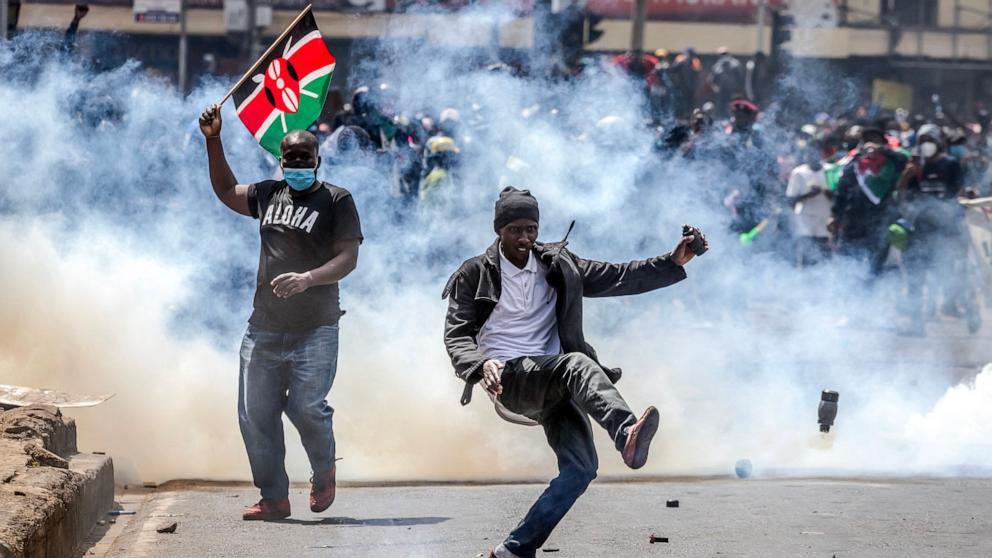The genocide against the Rohingya intensifies as war rages in Myanmar

A human rights group warns that the Rohingya are trapped in Myanmar due to fighting between the military and the Arakan Army in the west of the state.

People are seen on the Myanmar side of the border in Teknaf area of Cox’s Bazar, Bangladesh, June 24, 2024, during the ongoing conflict in Rakhine State (Mohammad Ponir Hossain/Reuters)
A UK-based human rights group has called for international action in the face of the “deepening genocide” against the predominantly Muslim Rohingya minority in Myanmar. Fighting between the Southeast Asian country’s military and a powerful armed ethnic group had previously escalated in western Rakhine State.
Tuesday’s warning by Burmese Rohingya Organisation UK (BROUK) came after the United Nations World Food Programme (WFP) condemned the looting and burning of its food stocks and warehouses in Maungdaw, a coastal town on the Myanmar-Bangladesh border that is home to a predominantly Rohingya population and is at the centre of current hostilities between the military and the Arakan Army (AA).
The AA represents the Buddhist majority in Rakhine and fights for the region’s autonomy.
Late on 17 June, it issued evacuation orders for Maungdaw ahead of a planned offensive, leaving tens of thousands of Rohingya residents of the city with “nowhere to flee”said the UN human rights chief.
The Rohingya, who are viewed as outsiders by the military and many Buddhist residents of Rakhine, have long been persecuted in Myanmar. In 2017, for example, a brutal military offensive drove around 750,000 members of this community to Bangladesh.
This rigorous approach is now the subject of genocide proceedings before the International Court of Justice (ICJ).
BROUK said in its new report that the 600,000 Rohingya who remain in Rakhine have faced increasing persecution after fighting between the military and the AA resumed last October. The military, which seized power in a coup in February 2021, is subjecting Rohingya in areas under its control to a “slow death” by depriving them of resources essential to survival – including food, water, shelter, sanitation and medical care – and by forcibly recruiting community members, including children, and sending them to the front lines to fight the AA, it said.
Both the military and the AA have committed war crimes against the Rohingya, BROUK said, including “murder, torture, cruel treatment, extrajudicial executions, sexual violence, rape, hostage-taking, forced recruitment and use of children, looting and deliberate attacks on civilians.”
“The Rohingya remaining in Rakhine State face either a quick death through killing by the Myanmar military or the Arakan Army, or a slow death through systematic denial of the basic necessities of life,” said Tun Khin, President of BROUK. “We are witnessing another significant increase in violence against the Rohingya and once again the UN Security Council is standing by and doing nothing.”
The failure of the international community to protect the Rohingya has led to “hundreds, if not several thousand” deaths in the past six months alone, BROUK said.
In addition, around 200,000 Rohingya who have been internally displaced are in urgent need of humanitarian assistance to prevent further loss of life, the human rights organization said. Another 11,000 members of this community – about half of them children – are trapped near Sittwe, the capital of Rakhine, surrounded by landmines and unable to flee as fighting approaches the city.
BROUK warned that the international community could not afford to abandon the Rohingya again, saying that the authorities in Myanmar had failed to comply with the 2020 International Court of Justice order to prevent acts against the minority population that could amount to genocide.
The group called for a public meeting of the UN Security Council to discuss the military’s “repeated violations” of the International Court of Justice’s orders and for measures to be taken to end the “cycle of impunity” in the country. This could include referring the matter to the International Criminal Court or establishing an ad hoc international tribunal.
“By repeatedly failing to take action to prevent violations of international law against the Rohingya over the past 12 years, the UN Security Council has sent a message to authoritarian regimes around the world that they can seek to wipe out minorities they do not like with impunity,” Tun Khin said.
“The genocide of the Rohingya was not inevitable, it was allowed to happen and it is still being allowed to happen,” he added.
The renewed fighting between the military and the AA has caused some 45,000 Rohingyas in Maungdaw and the neighboring Buthidaung township to flee to the border with Bangladesh, the UN human rights office said in May. The expulsion came amid reports of widespread arson in Rohingya villages in Buthidaung. Survivors accused the AA of carrying out the attacks in retaliation for the Rohingya’s alleged support for the military.
The UN Office for Human Rights said it had also documented at least four cases of beheadings by the AA.
The WFP said on Tuesday that it had no access to its camp in Maungdaw since the end of May due to fighting.
And on Saturday, the food supplies there were looted and the building burned down, it was said.
The camp contained 1,175 tons of food and supplies – enough emergency food to feed 64,000 people for a month.
The UN Food and Agriculture Agency did not name the perpetrators but said it was continuing to collect details on the circumstances of the incident.
It continues: “WFP calls on all parties to the conflict to comply with their obligations under international humanitarian law and ensure that humanitarian facilities and resources are respected and protected and that safe access is guaranteed so that vital assistance can reach those in need.”
© 2024 Al Jazeera Media Network


